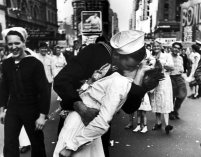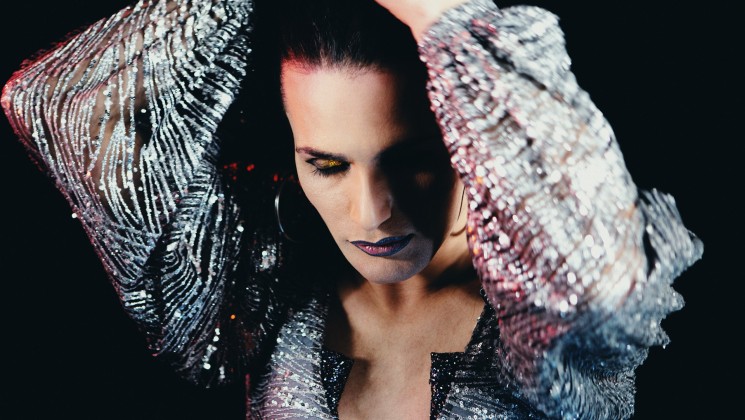
This year, however, historians have finally confirmed that the woman is Greta Zimmer Friedman, a dental nurse at the time, and George Mendonsa, a sailor.
A few facts have come to light. Far from being a kiss between a loving couple, we learn that George and Greta were perfect strangers. We learn that George was drunk, and that Greta had no idea of his presence, until she was in his arms, with his lips on hers.
The articles even give us Greta’s own words:
“It wasn’t my choice to be kissed. The guy just came over and grabbed!”
“I did not see him approaching, and before I knew it, I was in this vice grip.”
“That man was very strong. I wasn’t kissing him. He was kissing me.”
It seems pretty clear, then, that what George had committed was sexual assault. Yet, in an amazing feat of willful blindness, none of the articles comment on this, even as they reproduce Greta’s words for us. In a way, I understand this. The end of war is a big deal, and the euphoria felt throughout the nation on that day is an important part of American history. After all, this sailor has risked his life for his country. Surely his relief and excitement at the end of the war is justified? The answer to the first question is yes. He is perfectly entitled to be ecstatic. He is perfectly entitled to celebrate. However, this entitlement does not extend to his impinging on someone else’s bodily autonomy.









